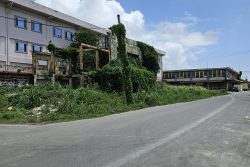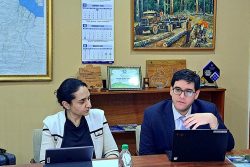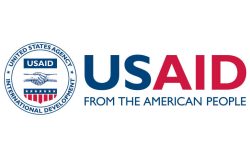On 11 March 2020, the World Health Organisation (WHO) declared COVID-19 a pandemic. This necessitated the manufacture, allocation and distribution worldwide of various vaccines that have been approved for use. In recognition of the corruption risks involved, to assist in mitigating such risks, and to help advance access to safe and effective COVID-19 vaccines, especially for the most vulnerable and marginalized groups, the United Nations Office on Drugs and Crime (UNODC) has developed a policy paper on the subject. According to the paper, which can be found at https://www.unodc.org/documents/corruption/COVID19/Policy_paper_on_COVID-19_vaccines_and_corruption_risks.pdf, the corruption risks involved include: entry of substandard and falsified vaccines into markets; theft of vaccines within the distribution systems; leakages in emergency funding designated for the development and distribution of vaccines; nepotism; favouritism; and corrupted procurement systems.
We note the controversy surrounding Guyana’s acquisition of Sputnik V vaccines from Russia and its procurement from an intermediate supplier – Sheik Ahmed Dalmook Al-Maktoum of the United Arab Emirates – at a price significantly higher than that recommended by the WHO. (Sheik Al-Maktoum had visited Guyana last year to explore investment opportunities.) According to the Health Minister, amounts totalling G$1.283 billion were spent in the procurement of 200,000 Sputnik V and 100,000 Sinopharm vaccines, and there are plans to source an additional 58,000 Sputnik V vaccines from the supplier at a cost of G$276 million. He explained that, faced with a high rate of infection, a global shortage of vaccines such as Pfizer, Moderna, Johnson and Johnson and limited supplies directly from India and through the COVAX facility, Guyana opted to buy the Sputnik V and Sinopharm vaccines from the above supplier.
While not seeking to get involved in the controversy, we highlight in this article the main points contained in UNODC’s policy paper on the subject. The text of the relevant sections has been retained, except for some minor adjustments.
Corruption risks in public procurement
Among all government functions, public procurement poses one of the greatest risks for corruption, considering the large volumes involved and their related costs. In many countries, public procurement is estimated to comprise as much as 15 – 30 per cent of the gross domestic product. Corruption scandals in procurement are widespread, especially in the healthcare sector in the acquisition of pharmaceutical and other supplies.
Corruption risks can be found throughout the procurement cycle. During the pre-bidding phase, these include inaccurately estimating the demand for a particular product or service, circumventing tender procedures, and deliberately tailoring tender documents to favour a particular bidder. During the bidding phase, there is the risk of government officials receiving bribes or kickbacks from suppliers, as well as of collusion and market division between bidders themselves. Such closed networks thrive by virtue of their exclusion and even more so when oversight is traded for speed and rapid impact. Lastly, in the post-bidding phase, corruption risks include false invoicing, changing contract agreements, and the failure to deliver procured goods and services.
In a public health crisis, corruption risks in procurement become greater considering the need for flexibility in the application of procurement rules and the speed of action. This creates opportunities for the use of individual discretion that can further increase the risk of corruption. Many countries have issued direct contracts without competitive processes and face challenges in ensuring that controls are in place to detect and prevent abuses and corrupt practices. Unscrupulous government officials may seek to enrich themselves, or those connected to them, through the procurement process by demanding kickbacks from suppliers. Suppliers, on the other hand, may exploit shortages to demand grossly inflated prices from government purchasers and collude with other suppliers to their advantage. If suppliers bribe government officials to circumvent regulatory controls, there is also a risk that governments may purchase substandard or falsified products, thereby undermining the health of their populations, reducing citizens’ trust and confidence in public institutions, and governments’ response to the crisis.
Corruption risks in emergency funding
During a crisis response, large amounts of funding are directed to address a critical and complex problem rapidly. As of June 2020, the International Monetary Fund estimated that approximately US$11 trillion was allocated globally as fiscal support to the COVID-19 response. Additionally, in October 2020, the World Bank approved US$12 billion for developing countries to finance, purchase and distribute COVID-19 vaccines as well as tests and treatments for their populations. Large inflows of funding that are disbursed quickly may be vulnerable to corruption if appropriate due diligence measures are not in place.
For example, during the Ebola virus disease crisis in Sierra Leone the National Audit Office found a lack of documentation of nearly US$3.3 million in payments from the Government’s Ebola accounts as well as many examples of apparent fraud and corruption, especially in the procurement of supplies for Ebola response workers. In the aftermath of Ebola, there was an upsurge in maternal mortality rates. The explicit and causal relationship that corruption had on maternal mortality rates in Sierra Leone was subsequently confirmed and elaborated on in a sequential mixed-methods study conducted from October 2016 to January 2017. Household surveys concluded that women who had given birth since the Ebola outbreak expressed mistrust of health-care workers primarily due to payments demanded for health care that would otherwise have been free. Women were therefore disproportionally affected during the Ebola crisis and its aftermath.
Production of substandard and falsified vaccines
With the urgent global demand for vaccines, there is a risk of substandard and falsified vaccines entering a market. Corruption may facilitate the involvement of organized criminal groups in the manufacturing of and trafficking in falsified vaccines, and the production of substandard vaccines by others, particularly when supplies will be limited in the early stages of vaccine production and deployment. This risk is further compounded if quality assurance measures are absent or bypassed during the emergency response, resulting in adverse health outcomes for the population and an erosion of public trust in the safety and efficacy of a vaccine.
Organized criminal groups may take advantage of the COVID-19 pandemic by attacking vulnerabilities and gaps in health and criminal systems. This includes the manufacturing of and trafficking in falsified medical products, driven by the huge global demand and competition in products for COVID-19 prevention, diagnosis, treatment and risk protection.
Nepotism/favouritism in access to vaccines
An estimated one billion people represent dispersed populations without formal identities, primarily living in developing countries. Reaching these populations will be particularly challenging when a COVID-19 vaccine becomes available. COVID-19 vaccine supplies will be limited in the initial stages of vaccine deployment, so it is vital that governments ensure that they allocate the vaccine fairly and that each dose reaches its intended recipient.
Decision-making relating to the allocation of vaccines to priority groups is also vulnerable to corruption risks, such as conflicts of interest and nepotism. The principles of equal respect, reciprocity and legitimacy stated in the values framework of the WHO Strategic Advisory Group of Experts on Immunization for the allocation and prioritization of COVID-19 vaccination, should be applied early in vaccine allocation and distribution.
Transparency
Transparency – information about public decision-making – is critical here. Transparency allows for the detection of corruption and lowers the likelihood of corrupt behaviour. It also lowers information barriers and permits scrutiny and monitoring. Governments will need to ensure transparency when establishing the criteria used to determine priority vaccine recipients and also make sure that this is then communicated widely to the population. Transparency is vital in ensuring that people are made aware of how, where, and when to access vaccination programmes.
Corrupt vaccine policy decisions
The private sector, and other relevant stakeholders, may seek to influence government decision-making concerning vaccine policy and deployment. Government officials may be vulnerable to payoffs and bribes from a company with a stake in which vaccine is purchased, for how much, from whom, and where it is distributed. Individuals with close ties to the health industry may also be involved in the decision-making process regarding vaccine purchases and deployment. As a hypothetical example, a physician, on a national immunization technical advisory group, may support a particular vaccine candidate developed by a company that has provided her/him with research or consultancy funding, and fail to declare this as a conflict of interest.
Given the public health crisis, governments may directly determine the prices for vaccines and other essential medical products, which can create corruption risks throughout the supply chain. Transparency in pricing of vaccine products is absolutely critical to avoid price gouging and other corrupt practices. The involvement and inclusion of a diverse group of people – at a minimum both women and men – in the vaccine decision-making and deployment processes are key. Ensuring equity in terms of access to a COVID-19 vaccine will require that governments adopt an inclusive approach in their recovery efforts.
Intermediate measures to reduce corruption risks
Considering the above challenges, the policy paper suggested that Member States consider the following intermediate response measures to identify and mitigate corruption risks that may compromise the access to safe and effective COVID-19 vaccines by the population. In doing so, the paper noted that the United Nations Convention against Corruption is the only legally binding, universal anti-corruption instrument that provides a global framework and key tools to foster accountability, integrity and transparency in times of crisis, as in the case of the COVID-19 pandemic:
Creating a specialized committee with a strong anti-corruption mandate to oversee the prioritization, distribution and monitoring of vaccine programmes, and related public policy. The committee can act as a critical oversight body during a public health emergency with responsibility for monitoring the emergency disbursements of funds, the purchase and distribution of vaccines and related processes in “real time” so that any red flags can be identified and addressed quickly;
Ensuring transparent and accountable vaccine procurement. Transparent and accountable public emergency procurement processes are vital during a pandemic and can be fostered through open contracting and e-procurement. Open contracting may be effective at reducing corruption because it provides the public with information about who is buying what, from whom, at what price and quantity. In addition, e-procurement can be effective at tackling corruption. It allows for the public dissemination of relevant data, such as the bidding and awarding of contracts through a dedicated website, thereby ensuring the element of transparency;
Providing secure storage and distribution systems to mitigate corruption risks. Secure storage and distribution systems are critical for the safe delivery of COVID-19 vaccines and the mitigation of the risk of vaccines being diverted from public supply to black markets. Manufacturers are already developing strategies to prevent the theft of vaccines. This may include measures such as ensuring the storage of vaccines in undisclosed locations, the use of a Global Positioning System tracking system to monitor supplies in transit, and the use of “dummy” trucks to confuse criminal networks. Hospitals may need to ensure that the rooms where COVID-19 vaccines are stored have heightened security;
Conducting corruption risk assessments. When feasible and ideally before widespread vaccine deployment, a corruption risk assessment can be used by public institutions to identify corruption vulnerabilities within their operations and to devise efficient, cost-effective strategies to mitigate those vulnerabilities or risks. Timely corruption risk assessments within health ministries or agencies entrusted with the procurement and distribution of COVID-19 vaccines will mitigate corruption risks during vaccine distribution procedures;
Strengthening civil society participation. Civil society participation in the formulation of policies and monitoring of the overall health system is a necessary element in efforts to curb corruption in the health sector. During the COVID-19 pandemic, civil society, non-governmental organizations and community-based organizations can support government efforts to counter corruption. Promoting the active participation of civil society should include enabling and encouraging civil society participation in relevant decision-making processes on the allocation and distribution of COVID-19 vaccines, including those related to the prioritization of recipients, the procurement of vaccines, and the flow of emergency funds for vaccine programmes. Civil society can assume a key role in monitoring and reporting any irregularities in the vaccine deployment process;
Protecting journalists and whistle-blowers. Investigative journalists assume an essential role during a crisis when false information may be used to protect those who engage in corrupt activities. Investigations by journalists can help expose alleged corruption or corruption risks within a health system, thereby playing a critical role by bringing the issue to the attention of the public and decision makers. Measures to ensure the protection and safety of journalists are crucial for them to act without fear and bring vital information to the people. Similarly, during the pandemic, whistle-blowers are critical, given the ample opportunities for corruption in times of crisis; and
Upholding the right to health. The United Nations Office of the High Commission for Human Rights, WHO and the Council of Europe, among other organizations, recognize that a human rights approach is crucial to an effective public health response to COVID-19. The standards of the right to health hold particular importance for effective pandemic care and responses. Corruption infringes on the full enjoyment of the right to health.
To be continued –










